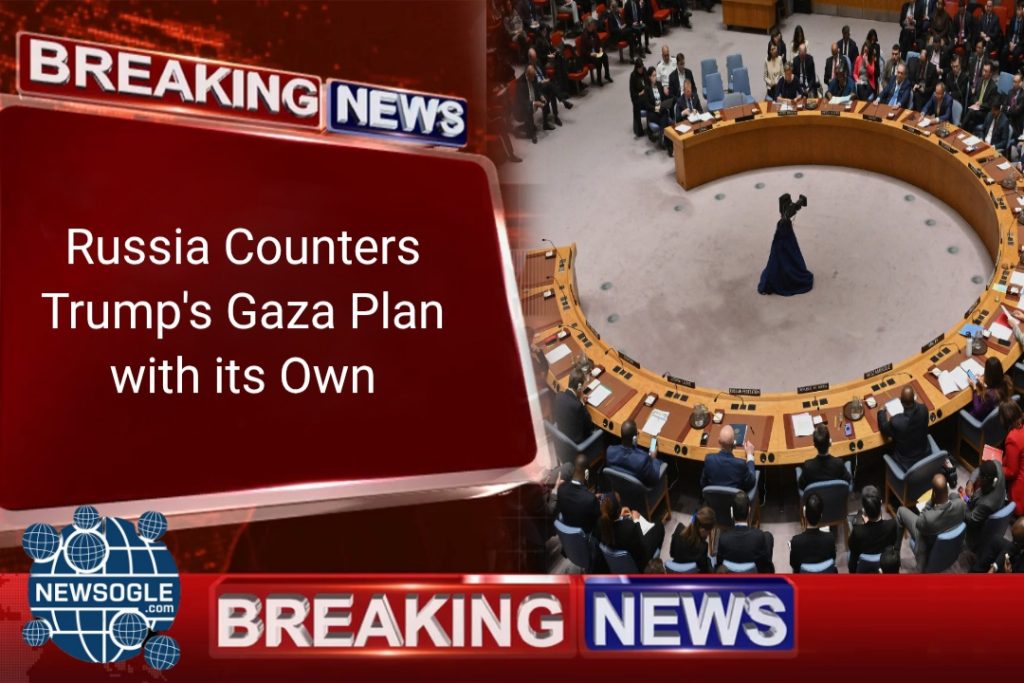
SEO Keywords: UN Security Council Gaza Veto, Russia US Gaza Resolution, UNSC Diplomatic Deadlock, Gaza Humanitarian Crisis Vote, US Russia Veto Power UN, International pressure on Gaza ceasefire, UNSC failure Middle East.
Double Veto Plunges UN Security Council into Further Disarray Over Gaza
The United Nations Security Council (UNSC) has once again failed to pass a substantive resolution addressing the ongoing conflict in Gaza, as deep divisions between permanent members the United States and Russia led to a devastating double veto on Friday. The diplomatic failure comes amid intensifying international pressure for a durable ceasefire and unimpeded humanitarian access to the strip.
The contentious session saw Moscow and Washington utilize their veto power to block rival proposals, effectively cementing the Council’s long-standing paralysis on the Israeli-Palestinian file. This diplomatic gridlock leaves the world’s most powerful body incapable of taking binding action to alleviate the worsening humanitarian crisis on the ground.
Breakdown of the Vetoed Resolutions
The session began with the highly anticipated vote on a Russian-drafted resolution that called for an immediate and permanent ceasefire, alongside demands for the protection of medical personnel and the establishment of a robust UN monitoring mechanism.
The vote on the Russian text was: 10 in favor, 2 against (US and UK), and 3 abstentions.
The U.S. Veto: U.S. Ambassador to the UN, Linda Thomas-Greenfield, swiftly cast the veto, arguing that the Russian proposal was “politically motivated” and failed to sufficiently condemn the actions of militant groups. She criticized the draft for not being “practical or balanced,” emphasizing that any resolution must focus on verifiable, sustained steps toward long-term peace rather than simple immediate cessation.
Following this failure, the Council moved to a vote on a U.S.-backed resolution—a proposal that had undergone intense negotiation with France and the UK. This text focused primarily on establishing “humanitarian pauses” and creating safe corridors for aid delivery, while also calling for the release of all hostages and asserting Israel’s right to security.
The vote on the U.S. text was: 11 in favor, 1 against (Russia), and 3 abstentions.
The Russian Veto: Russia’s Ambassador Vasily Nebenzia immediately employed the Russian veto. Nebenzia condemned the U.S. resolution as “weak and insufficient,” stating it failed to genuinely address the scale of the destruction and suffering in Gaza. He accused Washington of shielding one side of the conflict and attempting to pass a resolution that was “tantamount to a license to continue the military campaign.”
International Outcry and Humanitarian Impact
The dual failure was met with visible frustration from non-permanent members and leading UN officials, who emphasized the real-world cost of the Council’s inaction.
Ambassador Statement: The Ambassador of the UAE, speaking on behalf of the Arab Group, expressed profound disappointment. “The continuous exercise of the veto is not a political tool; it is a sentence of despair for the millions trapped in Gaza. The Council must move beyond geopolitical rivalries and heed the moral call of this crisis,” she stated.
UN Secretary-General’s Warning: UN Secretary-General António Guterres issued a sharp warning hours after the vetoes, stressing that the humanitarian aid pipeline is now “dangerously close to collapse.” He reiterated that international law is non-negotiable and demanded that global powers stop allowing political calculations to outweigh basic humanitarian responsibilities.
Experts warn that the diplomatic paralysis will only increase pressure on regional mediators, such as Egypt and Qatar, to broker localized and temporary ceasefires, bypassing the deadlocked UN framework entirely.
The Power of the Veto: A Fundamental Flaw
This episode re-emphasizes the inherent difficulty of achieving consensus on highly sensitive geopolitical matters under the current UNSC structure. The veto power—held only by the five permanent members (China, France, Russia, the United Kingdom, and the United States)—was designed to prevent the UN from engaging in military action against a permanent member. Critics, however, argue it has become a paralyzing tool used to protect national interests or allies, often at the expense of global peace and humanitarian relief.
The outcome of today’s double veto effectively ensures that no legally binding resolution can be adopted for the foreseeable future, prolonging the status quo and further challenging the credibility of the United Nations as an effective global arbiter.

Aleda Kawis is the Professional Journalist and serving in the field since 2012. She keeps extensive experience as investigating journalist and media influencer.





